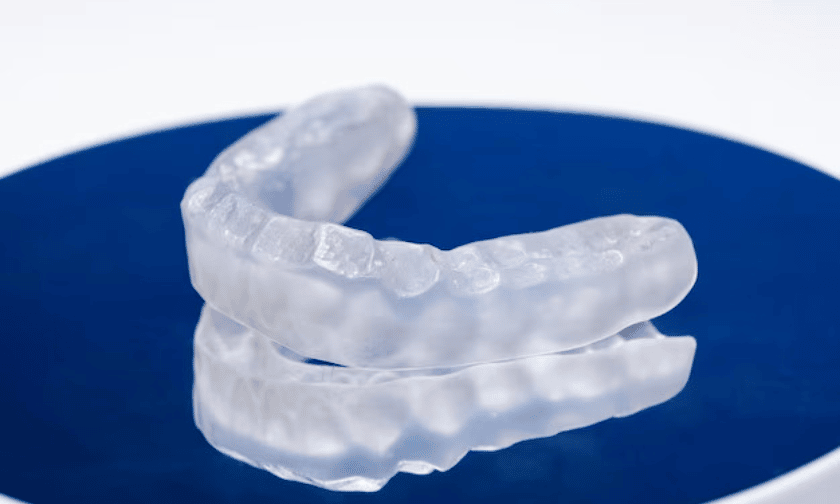
A mouthguard is a flexible device that fits over the teeth to protect them during sports activities or contact physical games. Mouth guards are designed to cushion the impact of blows to the face, preventing serious injuries such as broken teeth and concussions. Mouthguards are especially important for contact sports like football or rugby, where unintentional contact can lead to injury. Proper fitting and maintenance of your mouthguard is essential in order ensure that it provides the necessary protection you need while playing sports.
The Benefits of Mouthguards
Mouth guards provide several benefits, including protecting the teeth and jaw from trauma, preventing concussions and other facial injuries, and allowing athletes to perform better as they can breathe more easily. Mouthguards also help to absorb shock from blows to the face and reduce the risk of chipping or breaking teeth. Furthermore, wearing a mouthguard can help to prevent gum injuries.
1. Mouthguards protect the teeth and jaw from trauma
Mouthguards play an important role in protecting the teeth and jaw from serious trauma. In contact sports, a mouthguard can help to cushion the impact of a blow to the face and absorb some of the force that would otherwise be transferred to the teeth. Mouthguards also help keep the jaw in place, reducing the risk of it being dislocated or broken due to an impact.
2. Mouthguards can prevent concussions and other facial injuries
Mouthguards can also help to reduce the risk of head and neck injuries, such as concussions. Mouthguards absorb the force of a blow to the face and spread the impact over a larger area, reducing the risk of serious injury. Mouthguards also help to reduce the risk of facial injuries such as broken noses and displaced teeth.
3. Mouthguards allow athletes to perform better
Mouthguards can also help athletes perform at their best by allowing them to breathe more easily. Mouthguards can also help athletes focus on their performance, as they don’t have to worry about the risk of serious injury.
Proper Fitting & Maintenance of Your Mouthguard
To ensure that your mouthguard fits properly and provides the necessary protection, it is important to make sure that it is fitted correctly and maintained properly. Mouthguards that are too loose or too tight will not be as effective in protecting the teeth, so it is important to ensure that your mouthguard fits properly before you wear it.
1. Properly fitting your mouthguard
Before wearing a mouthguard, it is important to make sure that it fits properly. Mouthguards should fit snugly over the teeth and gums, but not too tightly to cause discomfort. If the mouthguard is too tight or too loose, it will not provide the necessary protection for your teeth. To make sure that your mouthguard fits properly, you can try it on at a store or have it custom-fitted by a dentist.
2. Mouthguard maintenance
To ensure that your mouthguard is in good condition, it is important to clean and maintain it regularly. Mouthguards should be cleaned with soap and water after each use, and stored in a dry place when not in use. It is also important to check the mouthguard for any signs of wear and tear, such as cracking or discoloration. If the mouthguard is damaged, it should be replaced immediately to ensure that it provides the necessary protection.
3. Mouthguard replacement
Mouthguards should be replaced regularly to ensure that they provide the necessary protection. Mouthguards should be replaced at least every year, and after any major dental work. If the mouthguard is in good condition, but doesn’t fit properly anymore, it should also be replaced.
Mouthguards are a critical piece of equipment for athletes who play contact sports, as they provide essential protection for your teeth and jaw while allowing you to perform at your best. It is important to make sure that your mouthguard fits properly and is maintained regularly in order to ensure that it provides the necessary protection.
FAQs
Q1: Do Mouthguards really help protect your teeth?
A1: Yes, Mouthguards can provide essential protection for your teeth and jaw from serious trauma such as broken noses, concussions and displaced teeth.
Q2: How often should Mouthguards be replaced?
A2: Mouthguards should be replaced at least once a year, and after any major dental work. If the Mouthguard is in good condition but doesn’t fit properly anymore, it should also be replaced.
Q3: How do I make sure my Mouthguard fits properly?
A3: To make sure that your Mouthguard fits properly, you can try it on at a store or have it custom-fitted by a dentist. Mouthguards should fit snugly over the teeth and gums, but not too tightly to cause discomfort.


